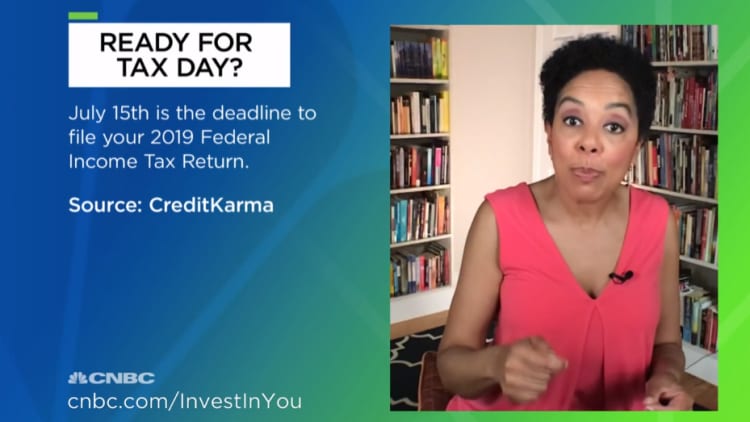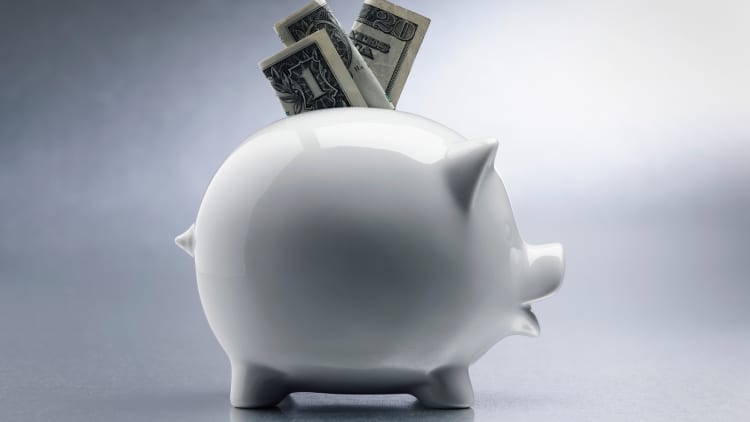There's one solid reason for saving more during the pandemic, even if you remain employed while many jobs fall by the wayside.
That's because even when the economy was stronger and unemployment was far lower, most Americans lacked a cash reserve. Before coronavirus hit, fewer than half of Americans said they'd be able to come up with $400 for an emergency expense, according to a frequently cited figure from the Federal Reserve.
The pandemic could be that opportunity for you to create a reserve.
More from Invest in You:
Not a saver? Learn these skills and end your year with a nice stash
Robo advisor and online broker apps make it easier to crack investing
That FTW you do all the right things except this one crucial one
"Save as much as you can so you have that buffer in case something happens to threaten your household income," said Jordanne Wells, 34, a personal finance blogger in Cincinnati.
"These are weird, unprecedented times," Wells said. "Everyone is facing some kind of income restriction that wasn't there before.
"It's a good idea to get as lean as possible and have your emergency funds up in case of job loss."
Ditch old assumptions
Saving for retirement and paying down debt are critical financial tasks.
But these days, the usual financial wisdom may not apply. Right now, emergency savings should be top-of-mind for most people.

Depending on household circumstances, you might trim retirement plan contributions. If you're saving through a workplace retirement plan that offers a match, at least contribute enough to get that money, says Tony Zabiegala, a chartered retirement planning counselor and vice president at Strategic Wealth Partners in Independence, Ohio.
Whether you're aggressively paying down a loan or trying to eliminate your mortgage before you retire, those might not be the best places for additional cash, Zabiegala says, especially if it's a low-interest loan.
When it comes to paying down debt, make minimum payments, Wells says.
Shine a light
You can't build an emergency fund without savings, and you might find that money in some unexpected places.
Make a list of everything you spend money on by looking at your past six months of credit card statements, suggests Zabiegala.
If something is low in importance and you're spending 30% of your discretionary dollars on it, change it.Andrew Rosenpartner at Diversified Lifelong Advisors
You might be surprised to find auto-pay charges for things you've forgotten about.
Consider switching out cable for one of the streaming services. Look for potential discounts when you pay for a service upfront instead of over a year, or by using a cash-back credit card.
Set priorities
You might waste more money than you realize.
Your spending should line up proportionately with your priorities. "If something is low in importance and you're spending 30% of your discretionary dollars on it, change it," said Andrew Rosen, a certified financial planner and partner at Diversified Lifelong Advisors in West Chester, Pennsylvania.
The point is to look at expenditures in context and next to one another, so you can compare how much you are spending in different categories.
Try asking
Another way to find extra money is to simply ask for it.
Don't forget to negotiate, Rosen says. Look at something you're already paying for, such as your cable bill or credit card, and ask for a better rate. "You don't get what you don't ask for," he said.
Two examples are auto and home insurance. Those prices creep up regularly, Rosen says. Instead of just paying that increase, ask for a re-rate.
"They'll give you a fresh quote and that can lower your rate," Rosen said. "My philosophy is, you don't get what you don't ask for."
A number of auto insurance companies announced in April they'd give refunds or credits to drivers. If you didn't receive one, ask directly, Zabiegala says.

SIGN UP: Money 101 is an 8-week learning course to financial freedom, delivered weekly to your inbox.
CHECK OUT: 23-year-old CEO: How I made a dorm room side hustle into a business bringing in $1 million via Grow with Acorns+CNBC.
Disclosure: NBCUniversal and Comcast Ventures are investors in Acorns.





